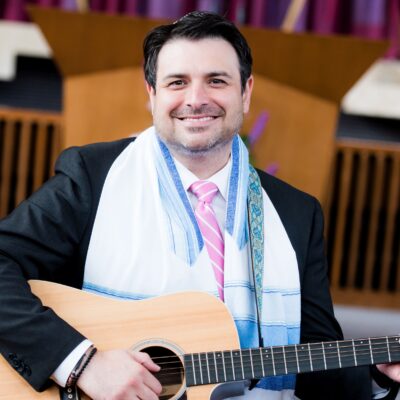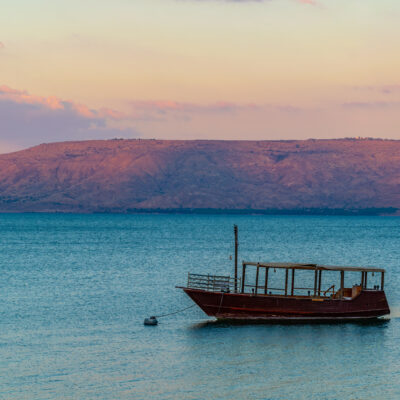COSTS OF WAR
Russian drone hits IsraAid water purification station in southern Ukraine
Israeli humanitarian relief group says it will take weeks to fix the system, forcing roughly 1,000 villagers to rely on bottled water

Courtesy/IsraAid
An IsraAid water purification station in Mykolaivska in southern Ukraine after it was hit by a Russian drone attack on Feb. 16, 2025.
A Russian drone strike over the weekend caused significant damage to a water purification station that had been set up by the Israeli humanitarian relief group IsraAid in a southern Ukraine village, knocking out the system, which provided water for roughly 1,000 people, for at least several weeks, a Ukrainian spokesperson for the group told eJewishPhilanthropy on Tuesday.
The village, Mykolaivska, just outside the city of Mykolaiv, had received the reverse osmosis system in late October 2023. The roughly 1,000 villagers who relied on it for free, unlimited water will now have to revert to receiving water in bottles and trucked-in containers, meaning water will again be rationed, according to Anna Pantiukhova, IsraAid’s communication officer in Ukraine.
The purified water was not only used for drinking and cooking but also for bathing, particularly children, as the village’s water supply is not considered safe — and wasn’t even before the war, though the security situation has “aggravated” the problem, according to Pantiukhova.
Now that water will be rationed, this will make it more difficult for people to use it for hygienic purposes, she said.
“Getting back the hope that things are going back to normal and then having that taken away is almost even more cruel than not giving the assistance in the first place,” she told eJP.
Pantiukhova noted that Mykolaivska has also been affected by the U.S. government’s USAID freeze. “They have at least 3 [USAID] projects that have been frozen,” she said. “All of that within one month is a bit devastating.”
The drone that struck Mykolaivska was part of a wider attack by Russia targeting the region, which also hit a local power plant, temporarily leaving some 100,000 people without heat in sub-zero temperatures.
The water purification system in Mykolaivska is made up of two parts, a pump that brings up groundwater — which was unharmed in the overnight drone strike between Saturday and Sunday— and a shipping container that has been converted into a purification and dispenser station, which uses reverse osmosis, ultraviolet light and activated charcoal filters and other methods to remove impurities and improve taste. With the standalone unit, which had the capacity to purify some 1,500 liters (400 gallons) of water per hour, villagers would bring containers to the station and fill them up for free.

The shipping container itself was badly damaged and will need to be replaced, as were the three dispenser units that were attached to it and the charcoal and UV filters and some other internal components, according to Pantiukhova. The most expensive component — the reverse osmosis filter, which uses a membrane to remove impurities — does not appear to have been damaged, though experts are still performing tests to ensure that is the case, she said.
“It is hard to say how long it will take [to repair the station],” Pantiukhova said. “It will take at least several weeks. It won’t be days. I don’t know if it will be months, but it will be weeks rather than days.”
She added that IsraAid will have to search for a new source of funding to repair the station.
“We’re looking to repair the station as soon as possible and bringing people back that sense of stability,” she said.
“I don’t have to explain that they are going through so much,” Pantiukhova said, referring to the nearly three years of war that the country has seen, including several months of Russian occupation in 2022.
“I love this village and their proactive attitude. When we brought the container in October 2023, they created a whole schedule because there had been a strike at a water distribution center near the village. So they were really worried about having lines of people [who could be targeted by Russian forces],” she said. “So they created a schedule street by street to ensure everybody gets water but there won’t be lines, so reconnaissance drones won’t see that people are gathering. And they arranged to bring water to people who cannot come themselves.”
IsraAid has installed 25 water purification systems in Ukraine since the start of the war. According to Pantiukhova, it is not clear if the water station in Mykolaivska was deliberately targeted by Russia or if it was hit incidentally — “Our dear neighbor doesn’t share that sort of information with us,” she quipped. However, she said that IsraAid is now considering how to better protect the station once it is repaired by camouflaging it or moving it to a more secure location.
“There is no definite solution to it, but we are trying to figure out a concept that is safe and make the best decision that is really sustainable because it is really expensive to repair or replace the station,” she said.

 Add EJP on Google
Add EJP on Google









